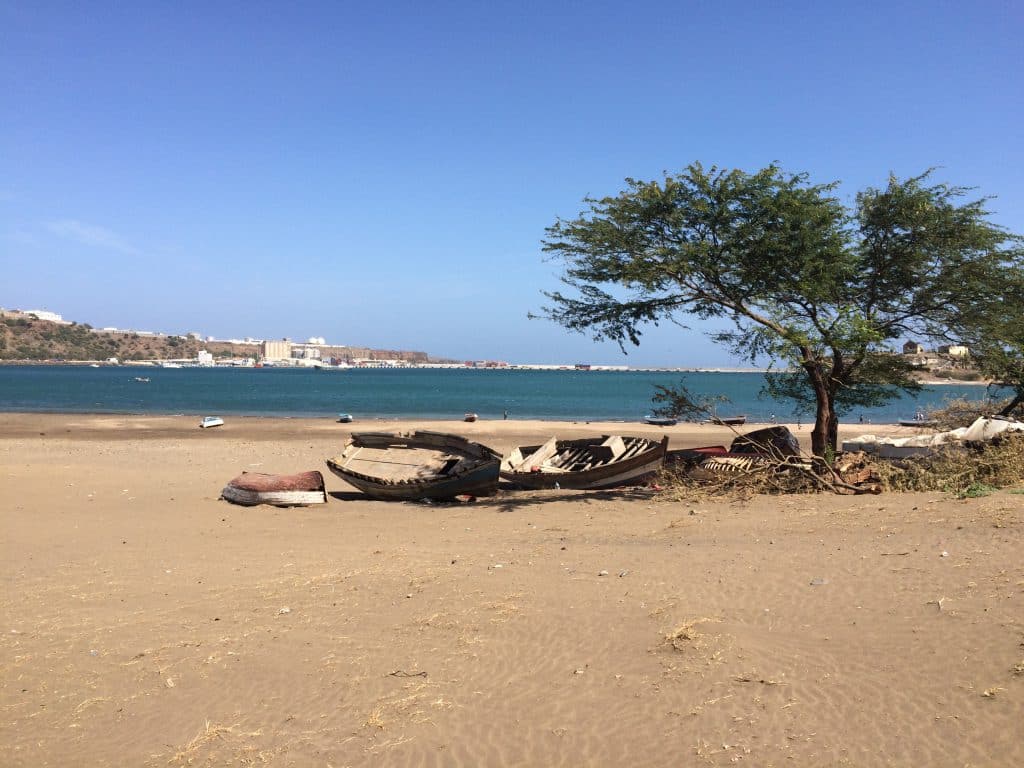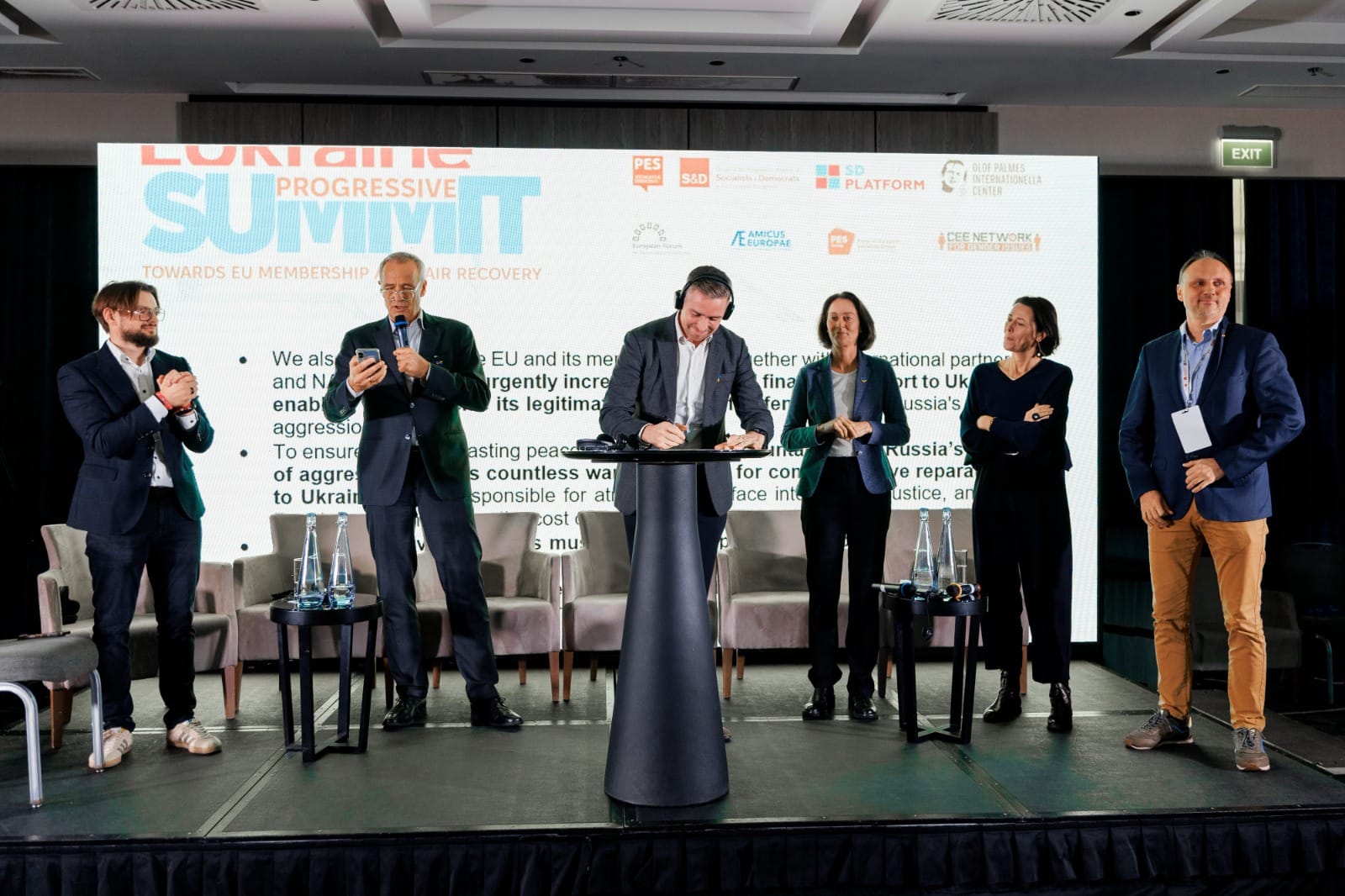Migration is of all times, how do we deal with it?
Closing borders is an illusion. Migration is of all times and cannot be stopped. At best, it can be controlled. The EU sees irregular migration flows as one of the biggest challenges in its existence. The question is how rational the fear of irregular migration actually is. The number of migrants trying to reach Europe this year has halved compared to 2017. The debate is mostly based on emotion, with the large influx from 2015 still fresh in the memory. This crisis led to panic in the political ranks across the EU. To this day, we see the consequences of this. Since then, policy changes have been swift. Borders closed and high fences were erected.
Measures were taken that until recently were not thought possible. The so-called "Turkey deal" is the most far-reaching example. It was agreed that migrants would henceforth be kept there in exchange for billions in aid to Turkey. Refugees stranded in Greece were to be sent back and, if given the green light, would be distributed to benevolent countries. Since then, every effort has been made to keep people "in the region" and ways have been sought to replicate the "Turkey deal" by making similar deals with North African countries.
Even in 2018, the influx of migrants across the Mediterranean is still not under control and many thousands of people, driven by their ambitions and aided by people smugglers, find death in rickety boats every year. Moreover, more and more stories are coming out about the harrowing situation in Libya in particular, where migrants are enslaved, exploited, humiliated, raped and detained in inhuman conditions. Nor has the "Turkey deal" brought the situation under control in Greece. Greek procedures are extremely slow and camps, such as on Lesbos island, remain overcrowded and are far below par in terms of facilities. EU aid has hardly led to improvement. Meanwhile, a government has taken office in Italy that refuses to take in any more people. In particular, relief organisations with ships present to rescue people are suffering. Other countries are only very reluctant to come to Italy's aid or flatly refuse to take in refugees "because they are Muslims". This has led to divisions and divisions between EU member states and contributed to a deadlock between EU institutions. As a result, the EU is no longer the driving force for progress on human rights that it has long been.
Migration is also behind the lingering political crisis in Germany and it is one of the main issues in several EU elections, such as recently in Sweden. Anti-migration parties everywhere are seeing their supporters grow. People's parties, such as the Social Democrats, are seeing their traditional following shrink and are therefore tempted to sharpen their views on migration. The Danish Social Democratic Party's plans go furthest in this regard. They propose not to let in any more refugees, but to send everyone to camps outside the EU where they have to await their procedure. Within the Labour Party there is also discussion on this issue.
Where does the FMS stand in this crisis?
We have drawn up a number of principles that a fair migration policy must meet. Here, economic migration and asylum migration should be kept apart. These are two categories for which very different rules apply.
1) Asylum seekers are entitled to a fair procedure
The FMS is undiminished by the current practice surrounding asylum applications. People who reach us and apply for asylum here are entitled to reception, a fair procedure and to await the outcome here in freedom and safety. We reject transporting people to a camp outside the EU, or locking them up in a camp within the EU. Europe was the spiritual father of the UN Refugee Convention, which must remain the starting point for processing asylum applications. The right to asylum is enshrined in the Universal Declaration of Human Rights in 1948. For instance, Article 14 of that convention states, "Everyone has the right to seek and enjoy in other countries asylum from persecution". Therefore, FMS believes that the right to asylum is as fundamental as the right to life, liberty and freedom of expression.
This is also our starting point when looking at plans to set up camps in several countries in North Africa where refugees can report if they want to come to the EU. The expectation is that refugees will then no longer make the dangerous crossing in boats. They will then have a safe alternative is the theory. However, there is a high risk of expanding refugee camps where people sit in vain waiting for the outcome of their procedure for years to come. It is also clear that economic migrants have no business in these camps, as they have no chance of coming to the EU anyway. Chances are that these will continue to try to reach the EU in all kinds of life-threatening ways for an existence in illegality.
If it is nevertheless decided to set up refugee camps in the EU's neighbouring countries, we believe they should meet a number of conditions:
- Human rights must be respected;
- A quick and fair procedure with possibility of appeal must be guaranteed;
- If the situation in the country of origin suddenly changes for the worse, rejections should be reversible;
- People should be provided with adequate facilities; adequate sanitation, clean drinking water, food, education for the children, health care and get help with trauma;
- Minorities must be protected, with a special focus on the vulnerable position of children, ethnic and religious minorities, women and LGBT people, among others;
- The camps must be protected from people smugglers and other mafia organisations;
- People should not be locked up.
2) No reception of asylum seekers and migrants in camps run by countries with poor human rights records
Settlement in countries with poor human rights records should be avoided. Eligible countries are Egypt, Libya, Tunisia, Algeria and Morocco. Unfortunately, these countries do not have a good record on social security, human rights, good governance and independent rule of law. The situation in Libya is chaotic and alarming. Human rights violations in Egypt and Algeria are widespread, and Morocco does not have a good record either, as the handling of protests in the Rif region shows. Tunisia is doing better than the aforementioned countries, but also has major problems and is far from stable. If it is eventually decided to establish camps in these countries, management will have to be in the hands of the UN or EU. Internationally respected NGOs should then have access to and oversee them.
3) Introduce more forms of legal and regulated migration
Economic migrants can now only enter the EU on a limited basis. They can use the 'bluecard' or specifically for the Netherlands through the Knowledge Migrants Scheme. You only enter legally if you have something to offer that we lack in the EU. If you don't, you are left with illegality, imprisonment or deportation. Aid organisations speak of a system of arbitrariness and exploitation, or even slavery, in which migrants end up.
It is clear that there is a great need for seasonal workers in the EU, for example in agriculture. We should facilitate this, for example by letting people work here temporarily, at a collective wage and good working conditions. When the contract is served, they leave again and receive the social contributions paid, once they are back in the country of origin. This so-called circular migration can be an answer to illegal labour migration that leads to exploitation, contribute to economic growth in countries of origin and also solve shortages in key economic sectors.
4) Stop oversimplifying Africa
The diversity of the African continent is huge. We as the EU have a complex relationship with 54 very different African countries. Africa is not a country, so we need to stop generalising. The EU will have to change the "mindset" in its relationship with Africa from an aid relationship, driven by financial resources , to a relationship with realistic characteristics of a partnership. There is therefore no point in coming up with plans that will just "solve Africa's problems". Indeed, the pretence that we are capable of solving the problems of countries in Africa from a European drawing board are simplistic and even insulting. A "Marshall Plan" for Africa is therefore not what Africa needs, but instead "ownership" should lie with African countries and inhabitants themselves. This means a relationship in which states are seen as equal interlocutors and inhabitants not as opportunistic fortune seekers, but as people with labour power, potential, expertise and ideas for innovation and change in their own economies and societies. For too long, we have shaped our relationship with the African continent from a paternalistic attitude. This stings in many African countries. With colonialism still fresh in the memory, it has led to distorted relations. It explains the attraction of new players, such as China, who invest in African countries for economic gain and do not impose any other moral conditions.
5) Work towards a fair relationship towards countries in Africa
We need to reach out. Still too often we give with one hand and take with the other. When it comes to trade, taxation and favouring our own businesses, there is gross inequality. Multinationals take far too little account of local interests; for instance, we allow capital to leave the African continent. African countries also miss out on hundreds of billions in tax revenue every year, which is siphoned off through Dutch letterbox companies, among others. On net, more money goes from Africa to Europe every year than the other way around. It is precisely tackling such practices that will help put African countries out of their misery. It will stop undermining local economies and ensure that countries have more resources to invest domestically.
Migration is of all times, it will continue and requires a multifaceted approach. We need to work on this together. In doing so, it is important to conduct the debate in a rational manner. To conduct the debate based on facts, rights and duties and to go less along with the negative frames that contribute to fear of refugees and migrants. Using these five principles, we can work towards a fair migration policy, both for asylum migration and economic migration, for now and in the future.




